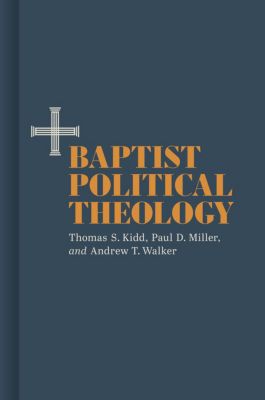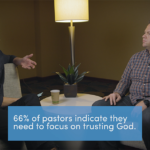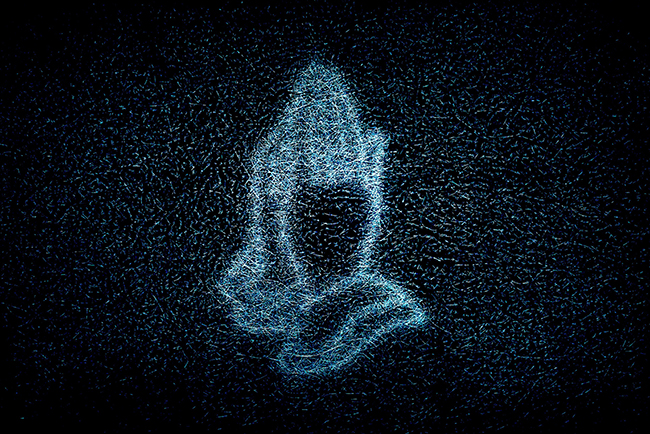
Four in 5 U.S. adults believe religious influence is declining in American life, and most aren’t happy about it, according to Pew Research.
By Aaron Earls
A Pew Research study finds 80% of Americans say the societal influence of religion is waning, the highest percentage in the more than two-decade history of the survey. Of those who say religion’s influence is falling, most view that negatively. Overall, 49% say religion is losing influence and that is a bad thing. Another 8% say religion’s influence is growing and that is a good thing. The combined 57% express a positive view of the influence of religion in American culture.
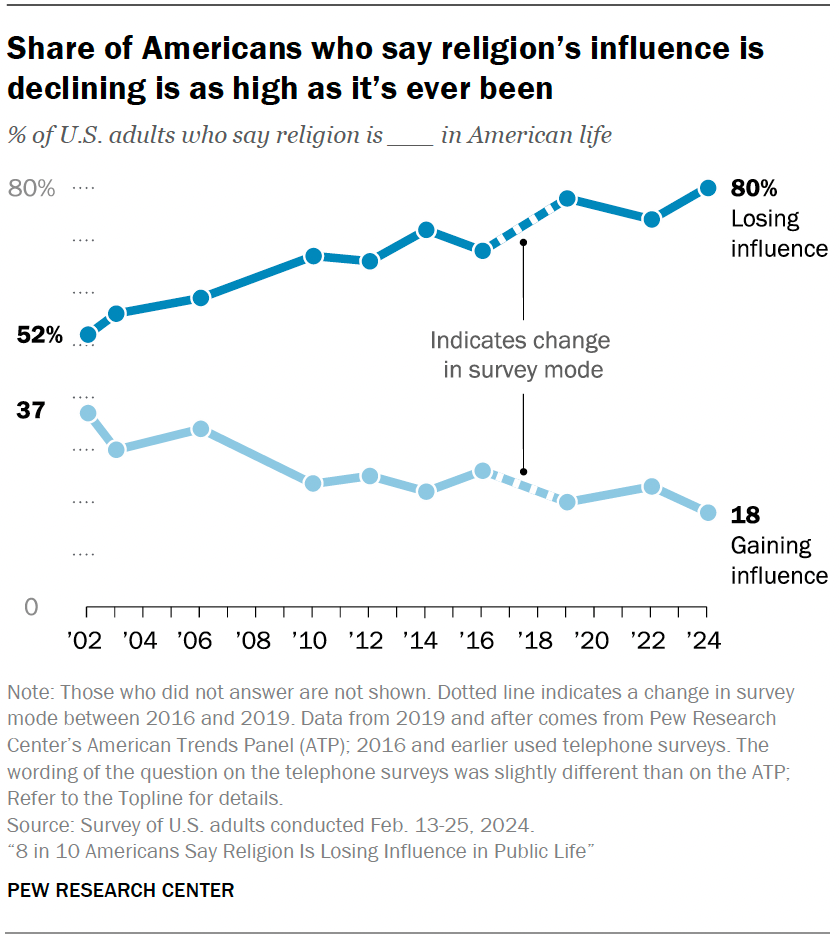
White Christians are among the most likely to see a decline in religion’s cultural influence, including white Catholics (88%), non-evangelical white Protestants (85%), and white evangelicals (82%). Non-white Christians—Hispanic Protestants (74%), Hispanic Catholics (76%), and Black Protestants (76%)—are less likely. Among other religious groups, the religiously unaffiliated (79%) and Jews (76%) are more likely than Muslims (64%) to say religious influence is falling.
Positive or negative perceptions
Around 1 in 5 Americans (19%) have a negative perception of religion’s influence, with 6% saying it’s growing and this is bad and 13% saying it’s declining and this is good. A similar number (21%) have a neutral opinion, including 3% who say religion’s influence is growing and this doesn’t make a difference and 18% saying it’s declining and this doesn’t make a difference.
Around 1 in 5 Americans (19%) have a negative perception of religion’s influence, according to Pew Research. Click To TweetWhite evangelicals are the most likely to have a positive view of religion’s influence in the country (90%), while atheists are the most likely to have a negative view (76%).
Additionally, a growing number of Americans feel their religious beliefs are in conflict with culture at large. The percentage who say there is at least some conflict between their religious beliefs and mainstream American culture has grown from 42% in 2020 to 48% in 2024.
White evangelicals (71%) are most likely to say there is at least some conflict, followed by Jews (59%), atheists (59%), Muslims (57%), Hispanic Protestants (54%), and white Catholics (52%).
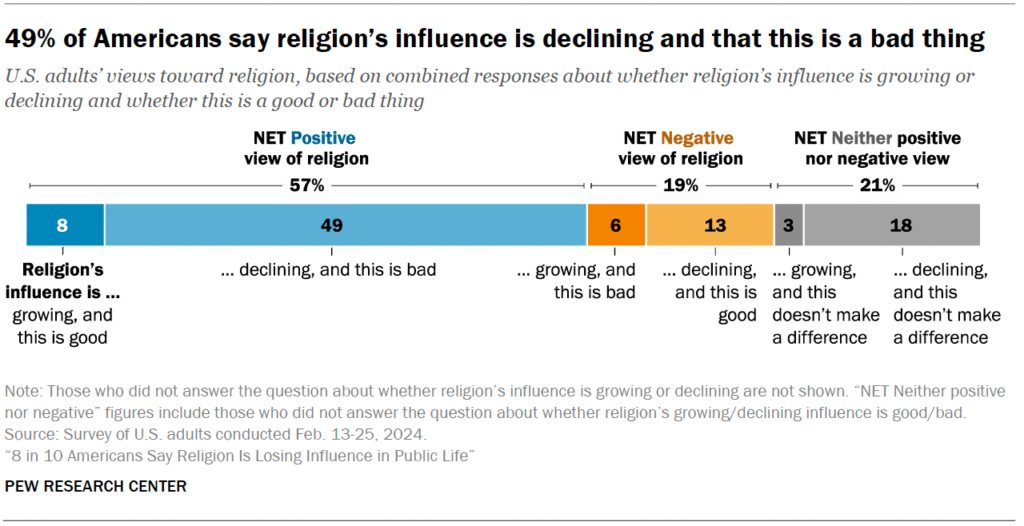
Religious minorities
Almost 3 in 10 Americans now see themselves as a religious minority. Today, 29% think of themselves as part of a minority group because of their religious beliefs, up from 24% in 2020. Currently, most Jewish Americans (83%) and Muslims (55%) think of themselves this way, as do 44% of atheists.
While fewer Christians see themselves as a religious minority, the percentage has grown from 2020 to 2024 among white evangelicals (32% to 37%), white non-evangelical Protestants (11% to 16%), Hispanic Protestants (28% to 38%), white Catholics (13% to 23%), and Hispanic Catholics (17% to 26%).
Almost 3 in 10 Americans (29%) now see themselves as a religious minority, including a growing number of white evangelicals (up from 32% in 2020 to 37% in 2024), according to Pew Research. Click To TweetAmericans are split on whether conservative Christians and liberals who aren’t religious have tried too hard to gain influence over schools and government. When asked if conservative Christians have gone too far in trying to push their religious values in the government and public schools, 48% agree and 49% disagree. When asked if secular liberals have gone too far in trying to keep out religious values in those same institutions, 50% agree and 47% disagree.
Almost 3 in 4 religiously unaffiliated Americans (72%), including 91% of atheists, say conservative Christians have gone too far in trying to push their religious values in the government and public schools. Similarly, 63% of Christians, including 83% of white evangelicals, say secular liberals have gone too far in trying to keep religious values out of those two public institutions.
For permission to republish this article, contact Marissa Postell Sullivan.



